The Life of the Guatemalan Weaver Women
The traditional life of the Mayan families is strongly influenced by the women. In many families the father is not present and often the children live with their mother up until adulthood. After all, women do much more than weaving and handcrafting textiles that are then used in everyday life. However, the weaving plays a very important part in the Guatemalan village people’s lives. Because the women sell their woven textiles to a large extent on the markets to help feed their families. Many people are unaware of the importance of this support, as women are still not considered to be a contributor. However, if more textiles would be sold, they could finally break the spiral of poverty. That is why the importance of weaving should not be forgotten!
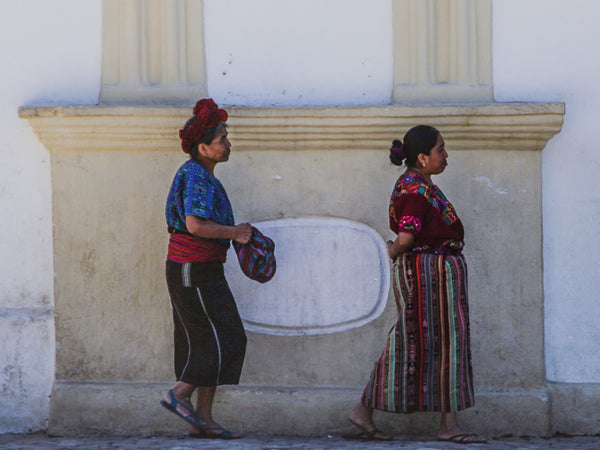
Low merit in weaving increases poverty
Weaving is hard work and, in addition to the right materials, requires experience, intuition - and a lot of time. Most women live in simple conditions and weave during the day or in the evening and at night while taking care of their children and doing house chores like cooking and cleaning. They don’t only weave to create their own clothes, the women weave to help support their family. The importance of women for the economic situation of the family is very big. Especially when the men work in the fields or on the markets or do other jobs that are not well paid, like most village people do. And mostly the jobs in Guatemala are very bad paid.
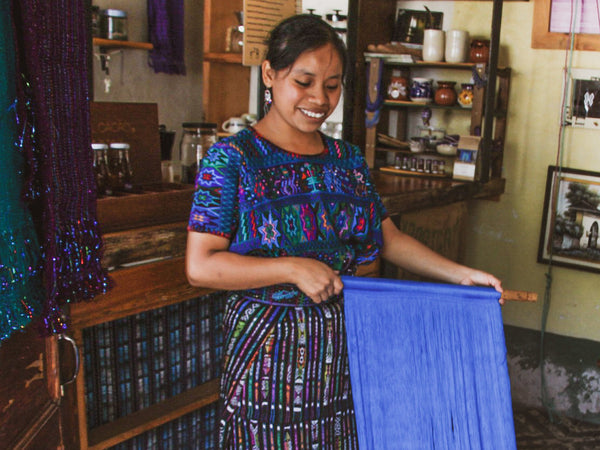
The current minimum wage in Guatemala is around 3000 Quetzals, that are around about $ 390. Many families in the country can only dream of such sums. In part, the earnings of many families are only $ 10 a day. From this, the children cannot be fed well and send to school. Mostly, it is hardly enough to survive. Since there is little work in the country and a very high unemployment rate, the importance of weaving is even greater. Especially in the villages. After all, the textiles that they weave are unique and of good quality, therefore they have high on the world market. Since there are a lot of women weaving in Guatemala, the demand is not big enough to sell only to Guatemalans. That’s how brands like Mayalla come into play. The Guatemalan weaver women don’t know much about Sales and Marketing and they are not skilled to work with the computer. Furthermore, they don’t have the necessary money to invest in selling to other countries. We give them a voice; through us they can be heard, and we help them to make the world aware of the beautiful art treasures that they create. It would be a pity if they would stay undiscovered! If we can help these women to sell more textiles, their earnings could increase, and this would have a positive impact in the lives of whole families.
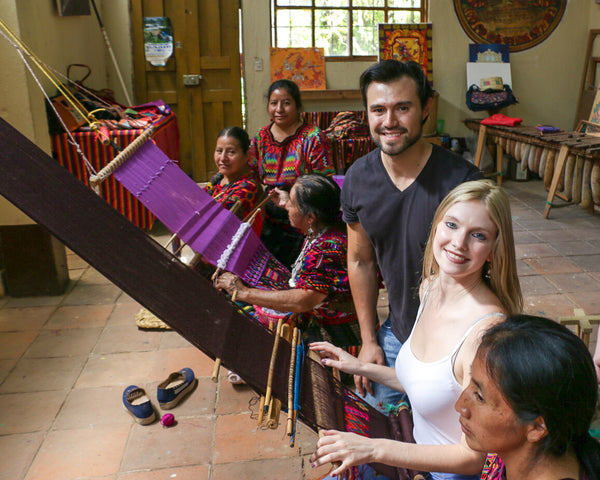
The future of the children is at stake
Poverty can be described as a kind of spiral among the families of Guatemala. The income of parents is not enough for a balanced, child-friendly nutrition. Often it is just enough for black beans, tortillas and rice. The malnutrition of the children is noticeable and visible throughout life. It has very bad influence on the child’s development. Their brain capacity cannot fully develop, and they have many health issues and often don’t reach a high age.
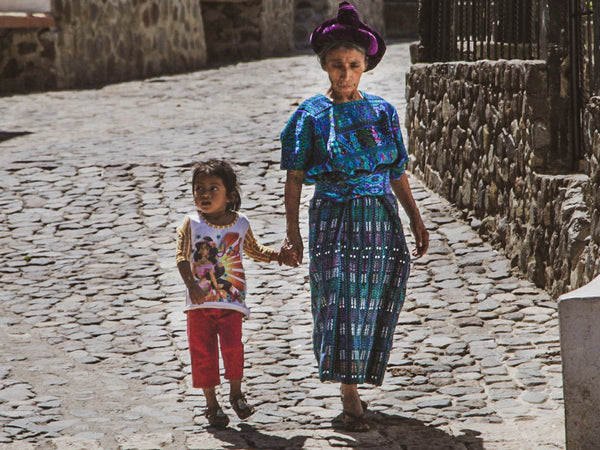
To make matters worse, the school in Guatemala cannot be visited without paying a school fee. Enough money for school fees, appropriate uniforms or books is therefore simply not available. Many children have to work with their parents from early age on to survive: The girls then also weave textiles for sale and the boys have to work in the field. In this way, a better future for the children is not in sight.
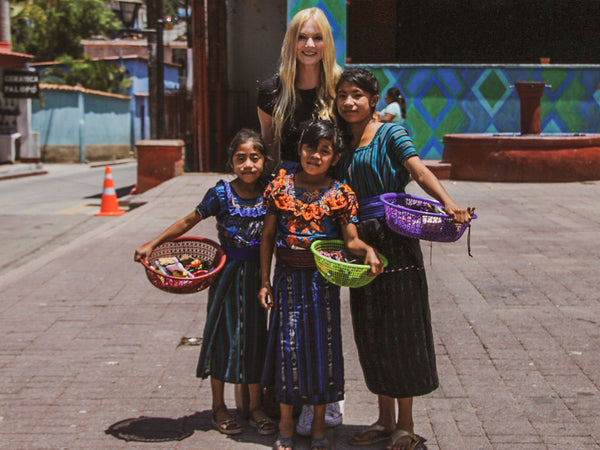
The solution is actually not that difficult but requires good strategies and a greater awareness of their own performance. As the older women in the family sell more textiles and the income from the sales increases over time, the overall living situation improves. The children then do not have to work anymore and can break the circle of poverty by going to school. Currently, 24 percent of Guatemala's young people are still illiterate and cannot read or write! Education opens completely new ways in life for them- that is why it is important that women do not have tons of unsold fabrics at home or on their market stalls. More appreciation for the artful, traditional work of weaving together with increasing sales could change their life completely!
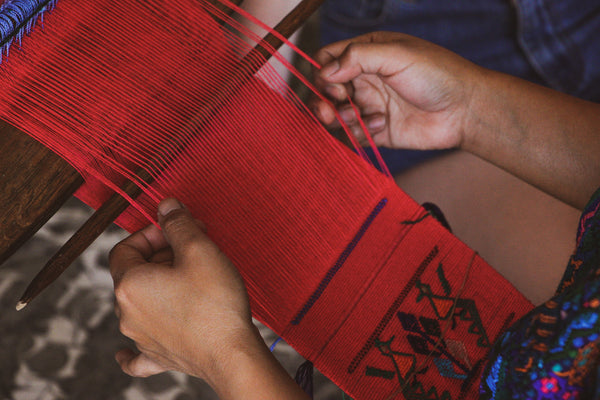



Leave a comment